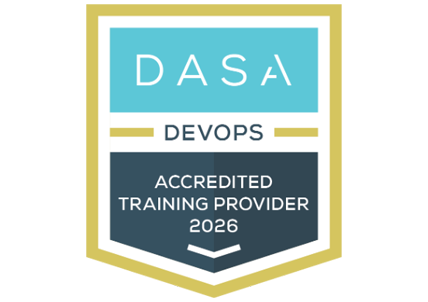Unable to find what you're searching for?
We're here to help you find itDASA DevOps Fundamentals Course Overview
The DASA DevOps Fundamentals course is designed to provide learners with a comprehensive understanding of the DevOps methodology and its key practices. It serves as an entry-level qualification for professionals seeking to understand the core concepts of DevOps and how to implement DevOps principles within their organization. Through lessons on culture, organization, processes, automation, and measurement and improvement, the course lays the groundwork for improving collaboration, communication, and integration between software developers and IT operations.
By obtaining the DASA DevOps Certification, participants can demonstrate their knowledge in applying DevOps practices and principles, contributing to the optimization of IT service delivery. With an emphasis on culture change, modern organizational models, Process re-engineering, Automation of software delivery, and Measuring performance, the course equips learners with the agile skills necessary to respond to changing market demands and enhance business value.
Purchase This Course
USD
View Fees Breakdown
| Flexi Video | 16,449 |
| Official E-coursebook | |
| Exam Voucher (optional) | |
| Hands-On-Labs2 | 4,159 |
| + GST 18% | 4,259 |
|
Total Fees (without exam & Labs) |
22,359 (INR) |
|
Total Fees (with Labs) |
28,359 (INR) |
Select Time
Select Date
| Day | Time |
|---|---|
|
to
|
to |
Scroll to view more course dates
*Inclusions in Koenig's Learning Stack may vary as per policies of OEMs
Suggestion submitted successfully.
Koenig Learning Stack
Inclusions in Koenig's Learning Stack may vary as per policies of OEMs



